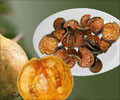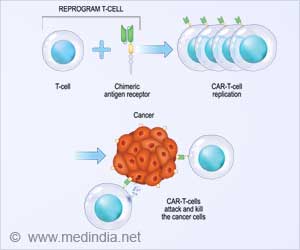Discover the potential of Japanese plum juice concentrate as a natural remedy for hypertension and cardiovascular disease.
- Temple University researchers uncover the cardiovascular benefits of Japanese plum juice concentrate in reducing the risk of cardiovascular disease
- Bainiku-Ekisu, an infused juice concentrate of the Japanese plum, shows promise as a potent anti-hypertensive agent, protecting against the effects of angiotensin II
- Bainiku-Ekisu inhibits the switch to glycolysis, preventing detrimental metabolic alterations that contribute to hypertrophy and inflammation associated with hypertension
Cardiovascular Benefits of Japanese Plum Juice Concentrate
The absence of new medications to effectively control hypertension and accompanying cardiovascular problems has fuelled a hunt for novel therapeutic techniques, and now, researchers at Temple University's Lewis Katz School of Medicine have discovered a viable alternative. The Temple researchers reveal in new research that a simple juice concentrate from the Japanese plum (Prunus mume)—a fruit commonly consumed in Asian countries and marketed as a health food in Japan—can lessen the risk of cardiovascular disease. The new findings are published in the journal Hypertension Research (1✔ ✔Trusted SourceInfused juice concentrate of Japanese plum Prunus mume attenuates inflammatory vascular remodeling in a mouse model of hypertension induced by angiotensin II
Go to source). "It is recognized that drugs alone are not enough to reduce the risk of cardiovascular disease in hypertension patients," explained Satoru Eguchi, M.D., Ph.D., FAHA, Professor in the Cardiovascular Research Center, Sol Sherry Thrombosis Research Center, and Center for Metabolic Disease Research at the Lewis Katz School of Medicine at Temple University and senior investigator and co-corresponding author on the new study. "To help solve this problem, we became interested in a supplement that could potentially decrease cardiovascular disease risk and began investigating the effects of bainiku-ekisu, an infused juice concentrate of the Japanese plum."
Bainiku-Ekisu: A Promising Anti-Hypertensive Agent
Because the raw fruit of the Japanese plum, known as "ume" in Japan, contains toxins, it is frequently processed into juices or wine that are safe for ingestion. Since at least the 18th century, the infused juice concentrate known as bainiku-ekisu has been used in Japan as a health supplement.Numerous claims have been made about the benefits of bainiku-ekisu, including its capacity to prevent heart disease, and while evidence from prior studies is limited, it appears that these claims are supported. In tests on blood vessel smooth muscle cells, bainiku-ekisu was discovered to suppress growth-promoting signals induced by angiotensin II—a circulatory hormone that plays a key role in the development of hypertension.
Dr. Eguchi and Dr. Hirotoshi Utsunomiya, Professors in the Department of Rehabilitation at Osaka Kawasaki Rehabilitation University in Japan and co-corresponding authors on the new report used a mouse model in which animals received angiotensin II infusions to induce hypertension to better understand the potential anti-hypertensive effects of bainiku-ekisu. Mice were subsequently given either ordinary water or water with bainiku-ekisu in the control group.
Bainiku-Ekisu's Role in Preventing Hypertension and Cardiovascular Disease
The cardiovascular function and vascular tissues of both groups of mice indicated significant variations. Notably, mice fed bainiku-ekisu did not develop hypertension, and tissue examination revealed that the juice concentrate protected the vasculature against the effects of angiotensin II in these animals. The aorta's hypertrophy (growth and enlargement) was limited in mice administered bainiku-ekisu, but control animals showed significant aortic hypertrophy. Bainiku-ekisu also reduced immune cell infiltration, which triggers inflammatory processes associated with hypertension.Dr. Eguchi and colleagues then looked at how bainiku-ekisu prevented hypertension in mice. They focused on molecular pathways involved in glycolysis, which is the process by which cells break down glucose and is a key component of hypertension-induced hypertrophy.
"In hypertension, cells shift from aerobic metabolism to glycolysis because there is less oxygen available in the cellular environment," Dr. Eguchi explained. "This switch results in high levels of oxidative stress, which leads to more inflammation, more vascular stiffness, and eventually, the development of more severe cardiovascular disease."
Experiments in cells revealed that bainiku-ekisu inhibits the switch to glycolysis, implying that it protects against angiotensin II-induced hypertension by preventing detrimental metabolic alterations that underpin hypertrophy and inflammation.
Dr. Eguchi and his colleagues intend to determine the precise components of bainiku-ekisu that are responsible for its protective properties in the coming months. "There may be two or three compounds working together, which could explain why the infused juice concentrate of ume is so popular as a health supplement," Dr. Eguchi noted. "Multiple compounds working together would produce additive or synergistic effects that might be lost in a pharmaceutical preparation."
Reference:
- Infused juice concentrate of Japanese plum Prunus mume attenuates inflammatory vascular remodeling in a mouse model of hypertension induced by angiotensin II - (https://www.nature.com/articles/s41440-023-01332-9)
















